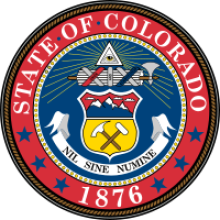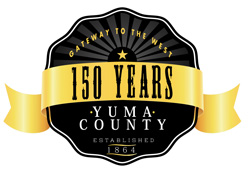
Two more Colorado communities will be deciding whether or not to reclaim local telecommunications authority this fall. Colorado State Bill 152 took away local authority in 2005 but voters in several areas of the state are taking it back. Readers will recall Centennial voters passed the measure 3:1 last fall and Montrose voters approved a similar measure in the spring.
Boulder is home to the Boulder Research and Administration Network (BRAN), a fiber network that currently serves the city, the University of Colorado, the U.S. Department of Commerce, and the University Corporation for Atmospheric Research. A conduit network is already in place and an I-Net connects dozens of municipal facilities. Community leaders decided last summer it made good sense to re-establish the authority needed to make the most of existing resources. The Daily Camera recently spoke with a ballot measure 2C supporter:
"This allows the city of Boulder to determine what to do with a resource that already exists and is already paid for," said Timothy O'Shea, a member of the Yes on 2C steering committee who has worked with Boulder start-ups.
…
"It will not be the City Council determining that we'll have municipalization of those services," O'Shea said. "Yes on 2C is not about that. It's about the beginning of a dialogue and getting out from under a state law that prevents us from innovating with our existing resources."
Boulder's ballot measure [PDF] reads:
Shall the City of Boulder be authorized to provide high-speed Internet servicès (advanced services), telecommunications services, andior eable television services to residents, businesses, schools, libraries, nonprofit entities and other users of such services, either directly or indirectly with public or private sector partners, as expressly permitted by çç 29-27-i01 : to '304,' "Competition in Utility and Entertainment Services," of the Colorado Revised Statutes, without limiting its home rule authority?
The Boulder Chamber of Commerce and the Boulder Weekly support the measure.

Voters in Yuma County, the city of Yuma, and the Yuma county seat of Wray will decide a similar ballot question during this election. Each community will decide similar language for measures 1B, 2B, and/or 2C [PDF]:
WITHOUT INCREASING TAXES, SHALL THE CITIZENS OF YUMA COUNTY COLORADO RE-ESTABLISH THEIR COUNTIES' RIGHT TO PROVIDE ALL SERVICES AND FACILITIES RESTRICTED SINCE 2005 BY TITLE 29, ARTICLE 27 OF THE COLORADO REVISED STATUTES, DESCRIBED AS "ADVANCED SERVICES," "TELECOMMUNICATIONS SERVICES," AND "CABLE TELEVISION SERVICES," INCLUDING PROVIDING ANY NEW AND IMPROVED BROADBAND SERVICES AND FACILITIES BASED ON FUTURE TECHNOLOGIES, UTILIZING EXISTING OR NEW COMMUNITY OWNED INFRASTRUCTURE INCLUDING BUT NOT LIMITED TO THE EXISTING FIBER OPTIC NETWORK, EITHER DIRECTLY OR INDIRECTLY WITH PUBLIC OR PRIVATE SECTOR PARTNERS, TO POTENTIAL SUBSCRIBERS THAT MAY INCLUDE TELECOMMUNICATIONS SERVICE PROVIDERS, RESIDENTIAL OR COMMERCIAL USERS WITHIN THE BOUNDARIES OF YUMA COUNTY?
According to a comprehensive story by Gavin Dahl for the Boulder Weekly, Yuma County leaders recognize the key role connectivity plays in economic development:
Local officials like Yuma County Economic Development Corporation Executive Director Darlene Carpio say the lack of investment from the private sector has hurt their communities.
“We just don’t have what we need here — the speeds, affordability, reliability,” she says. “The first hurdle is that Senate Bill 152 precludes us from being able to consider all options.”
Yuma County is located on the northeast border of the state, and is home to approximately 10,000 people. A little over 3,500 live in the municipality of Yuma and about 2,300 live in Wray. Like Centennial, Montrose, and Boulder, community advocates have no specific plans to develop a municipal network at this early stage, but recognize the need to open up possibilities. The Better Internet for Yuma County website states:
There is not a “one size fits all” model that can work for every community. Yuma County formed a Broadband Task Force in 2014, hosting monthly meetings with stakeholders to address the broadband challenges. This dialogue will continue and will help us determine the right way to reach our goal. We will evaluate those models that other successful cities have used, but in the end our system should be tailored for our unique needs. We will also engage with telecommunication providers that are currently operating in our communities in an effort to develop a successful business model to address the long-term needs of our county. Developing this business model is expected to take several months.







